
OR
The blockade: Lessons unlearned
Published On: September 27, 2018 01:30 AM NPT By: Mahabir Paudyal | @mahabirpaudyal
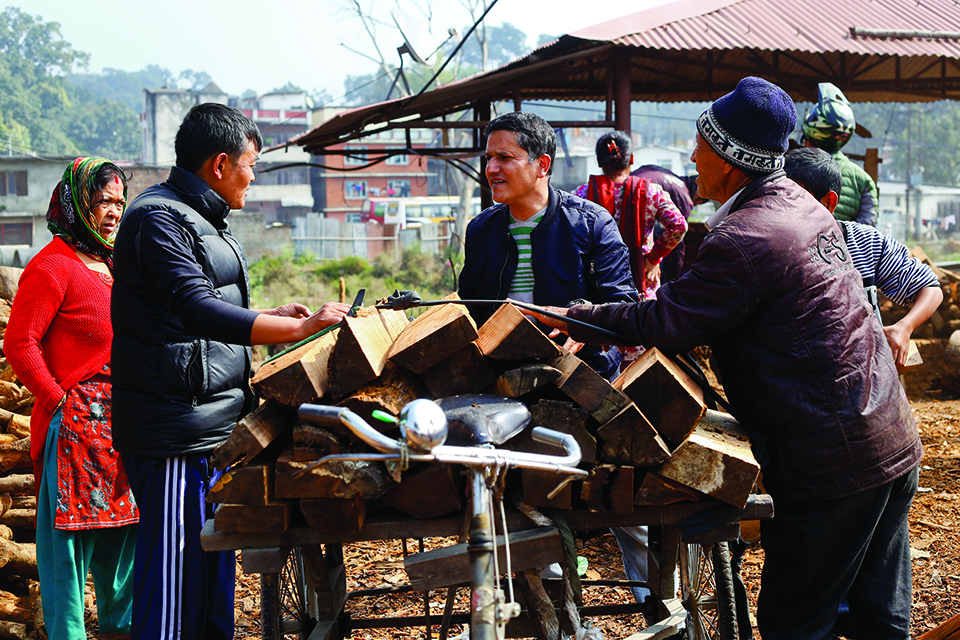

Mahabir Paudyal
Mahabir Paudyal is an opinion writer at Republica with interest on history, domestic politics and international relations.mahabirpaudyal@gmail.com
More from Author
- Nepal is falling into a trap of India, China and the US
- Prime Minister Oli is pushing the country to precipice. Is there a way to stop him?
- How can you be so irresponsible about education?
- What is Nepali Congress thinking about China?
- Fellow Nepalis, fear the government, fear as much for the country
For a country that has suffered thrice because of blockade, blockade should not be a mere tool for certain leaders to capitalize during the elections, rise to power and lead the government
This month three years ago was the month of horror and suffering. The siege, that was to last for the next four months, had begun. There was fear, uncertainty and resentment among people. Leaders looked lost and helpless. But many things have changed now. The country that blockaded us then has become Nepal’s ‘trusted’ neighbor once again. The leaders of the two countries talk of friendship, trust, fraternity, cooperation and exchanges. They have met each other several times since then. This is good.
The year 2015 and 2016 was different also because we discussed a lot about how Nepal can become self-reliant on basic things, if not oil. We discussed ways to find alternative routes for petroleum import. The reason we have suffered during all blockades, it was rightly concluded then, is we import almost everything from India—from gasoline to clothes to flowers to food to ghee to chilies to rice to salt. Nepal must be self-sufficient on these products, we concluded. That was the spirit then, at least among some.
Three years down the line certain facts have not changed. We are vulnerable to shocks in case of incidents like that of 2015, for we are as dependent on India for almost everything as we were in 2015.
Come to think of it. Our import to export ratio is completely mismatched. For every Rs 100 trade, we export for Rs 6.5 while our import bill climbs to Rs 93.5 .We are using large chunk of our money to pay for imported goods, mostly coming from India.
Forget trade deficit, which is as glaring now as then, the rice we eat, onions, garlic and spices we use in curry all come from India today. We imported food products worth Rs 40 billion in fiscal year 2016/17. Rice (worth Rs 23 billion) constitutes the major proportion of imported food, followed by food grains like maize, wheat, buck wheat and barley. The import bill of rice in 2017/18 was as high as Rs 28 billion and this is in steady rise. So this Dashain we might be importing goats, and this Deepawali we might be importing flowers and fruits from India or China.
Learn from others
Qatar is no parallel to Nepal in many respects but how Qatar is battling against the blockade, and booming despite it, may be inspiring for readers.
On June 3, Yousuf Bin Mohammed Al-Hail, the ambassador of Qatar to Nepal, was telling a group of journalists (this scribe included) the stories of his country’s struggle against the blockade. There was pride in his tone. He told us how his country has been able to cope up with the inhuman blockade and move forward toward a better future.
“Before the blockade, we used to import milk, juice, chicken and a variety of other food products from outside. Now we produce all of them within the country. We have imported 6,000 cows from Canada which are providing milk products to our people. Now people get food products at much cheaper prices than before,” he said.
Since the blockade, he went on, Qatar has opened more than 1,000 companies which have provided jobs to hundreds of thousands and many more tourists come to Qatar than before. “In a sense, the blockade has come as a blessing in disguise for us,” he said.
Qatar’s blockade is more harrowing than the one Nepal faced in 2015. The tiny gulf state was blockaded by four of its Arab neighbors—Saudi Arabia, the UAE, Bahrain and Egypt. They abruptly cut off diplomatic ties with Qatar and imposed travel and trade bans. The country was denied airspace. Qataris living in Saudi Arabia, the UAE, Bahrain and Egypt were made to leave those countries with immediate effect. Now the country has emerged stronger, more united and more nationalistic, according to Al-Hail.
Various other reports show Qatar is thriving under blockade without compromising its sovereignty. Few days back, when I met the Qatari ambassador he was saying his country has done much better with blockade. Countries take blockade very seriously. Journalist Kamal Dev Bhattarai reported last month in an online newspaper that Bhutan was deeply alert by blockade in Nepal and Bhutanese intelligentsia and leaders are working to diversify the country’s trade with China without riling up India.
Blockade boomerangs
Blockade is the worst, the most inhuman and most counterproductive tool that a country uses against another country. But big powers often resort to it. Asia has its share of examples. In December, 2016, China closed a key border crossing to Mongolia, creating difficulties for Mongolians for days. India created a blockade-like situation for the Maldives when it curtailed 50 to 94 percent of the supply of food items to Maldives in June 2018. The sanction was imposed in reaction to Maldives’ growing engagement with China.
This cruel tool is sometimes used by people against their own people. In February, 2016, Jats of Haryana blocked water supply to New Delhi pushing the Indian capital under reeling scarcity of water for days. Over dozen people died during the incident.
Blockade turns people against people and nation against nations. It generates indelible feelings of bitterness. The nations that impose blockade gain nothing at the end.
Think of Nepal and India. Back home, it almost ruptured the social harmony between people of the plains and those of the hills. In Nepal, it generated deep anti-India feelings. In India, the government was criticized for its coercive move on Nepal by the opposition party as well as the general public. Nepal suffered but India also gained nothing by blockading Nepal.
Time for reckoning
What did Nepal learn from the blockade? In three years, how many factories, big or small, did the country open? How many jobs have we created?
Yes, signing of protocol agreement on trade and transit through China can be called a signature achievement of K P Sharma Oli’s government (history will judge him kindly for this) but we will know what this actually means for Nepal when we start trading by using Chinese ports and when benefits start tricking down.
We must first be self-reliant on food. For this, we should start revitalizing farming in the hills and the plains. Thousands of hectares of barren cultivable lands (recorded at 30 percent but it could be much more than that) stare at our face today. They are barren. Grass, thorns and weeds grow in the fields that once gave rice and maize. Rural households of Nepal eat imported rice. Their fields are barren, their children are out of the country and the money they send is being used to buy the food imported from outside while their own backyards are becoming the graveyards.
It takes time to set up big factories and infrastructures. But we could have done something about our barren land swiftly and right after the blockade. The local governments were expected to take up this much-needed undertaking but they are staying idle. The government could have come up with scheme to take up the barren land for collective farming of rice, vegetables and fruits. We need to bring those barren fields back to life. The first condition for survival of the country is when it produces enough to feed its people.
The only tool to fight back blockade is by enhancing economy and becoming self reliant on as many food and goods as possible. For a country that has suffered because of blockade—thrice—blockade should not be a mere tool for certain leaders to capitalize during the elections, rise to power and lead the government. It must be much more than that especially for leader like Prime Minister Oli.
In blockade, Qatar found an opportunity to expand its economy—country’s economy grew by 1.6 percent in 2017. Here is an irony: Nepali migrants are toiling in Qatar, helping the country to cope with blockade and strengthen its economy. Back home, the country relies on food imported from elsewhere. Should the crisis like that of 2015 occur, it will come as a rude awakening. We will then resume the debate of how the country should be self-reliant on food.
That June afternoon inside the office of Qatar embassy, ambassador Al-Hail was telling us the success stories of the country under the blockade. I was constantly thinking of Nepal: What would have happened if the blockade had lasted for a year or more instead of only six months?
mahabirpaudyal@gmail.com
You May Like This

Investment for prosperity
Sources of investment lie in our doorsteps but Nepal is still reeling under low investment trap inimical to achieving prosperity... Read More...
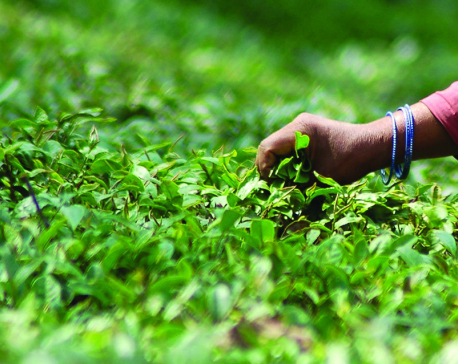
Toward green democracy
Nepal’s constitution is the first national charter in the world to enshrine the provisions to advance the cause of green... Read More...
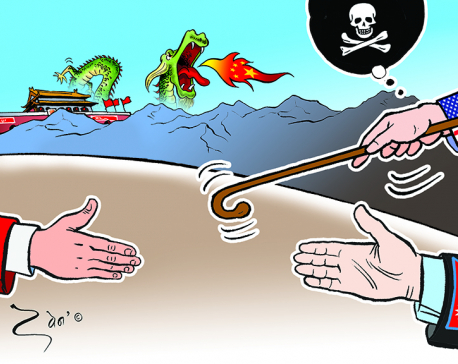
Emerging challenges
As Nepal respects sensitivities of its neighbors and friends, they must also respect Nepal’s priority to safeguard its independence, right... Read More...



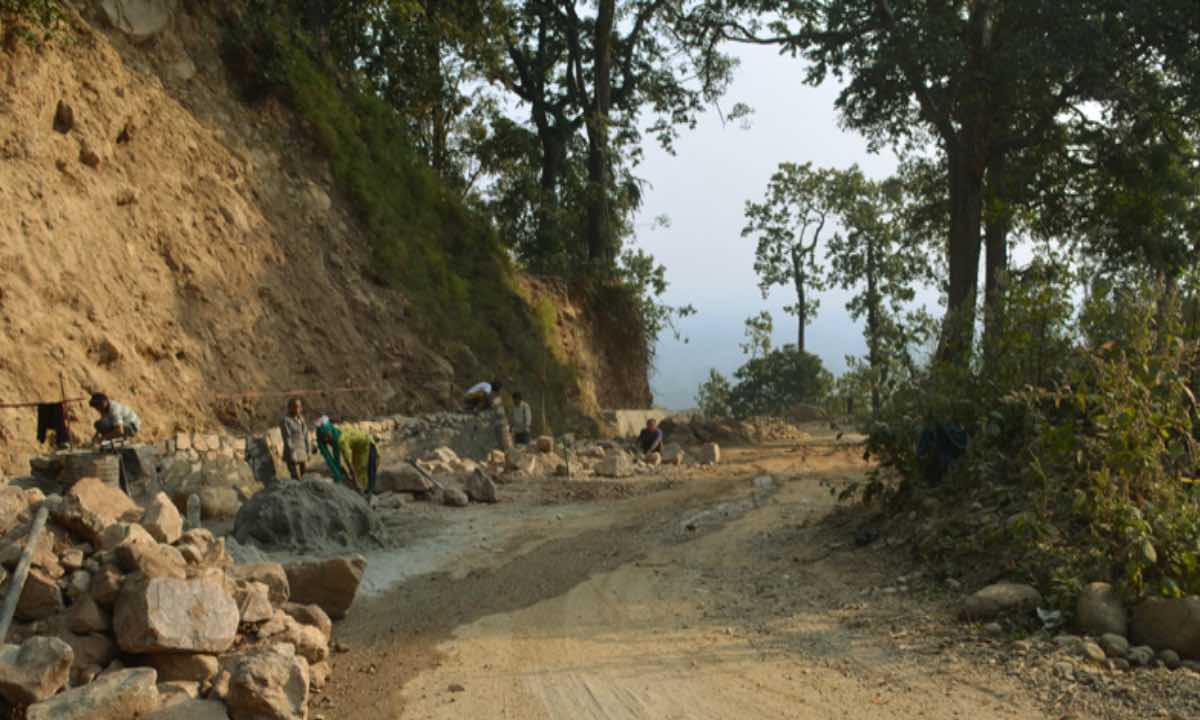
Just In
- KMC to organize a month-long skill fair from May 1
- Birgunj Metropolis collects over Rs 360 million in revenue
- NEPSE plunges below 2,000 points after one and a half months; daily turnover declines to Rs 2.10 billion
- AI Index Report-2024: AI still behind humans on complex tasks like competition-level mathematics
- Daiji-Jogbudha road construction at snail’s pace
- Govt fails to adopt podway technology despite its potential in Nepal
- Jhulaghat border crossing in Baitadi to remain closed from this evening
- Universities will be free from partisan interests: Education Minister






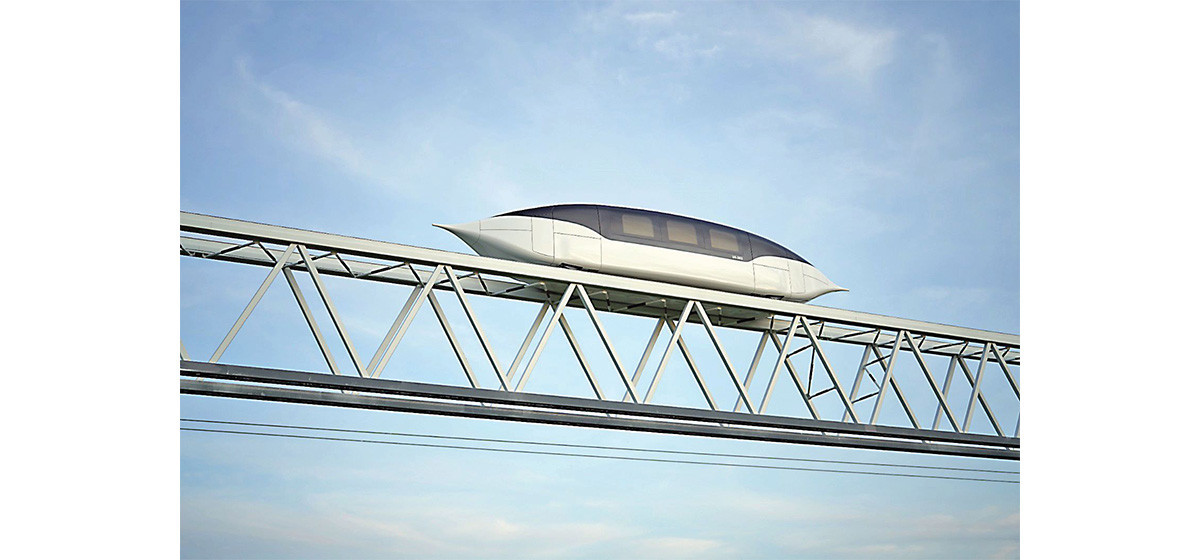




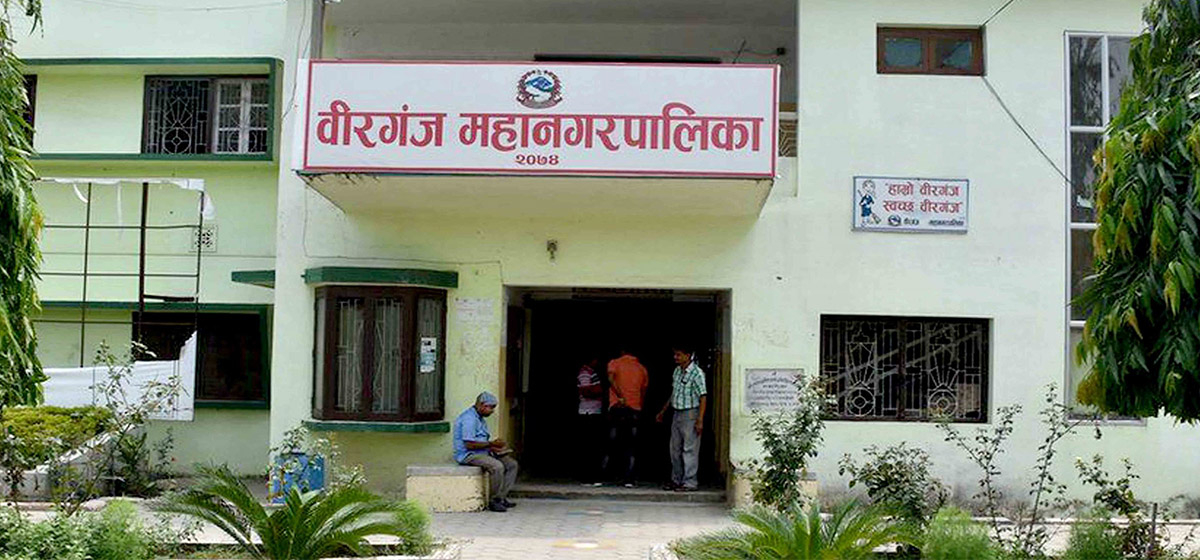
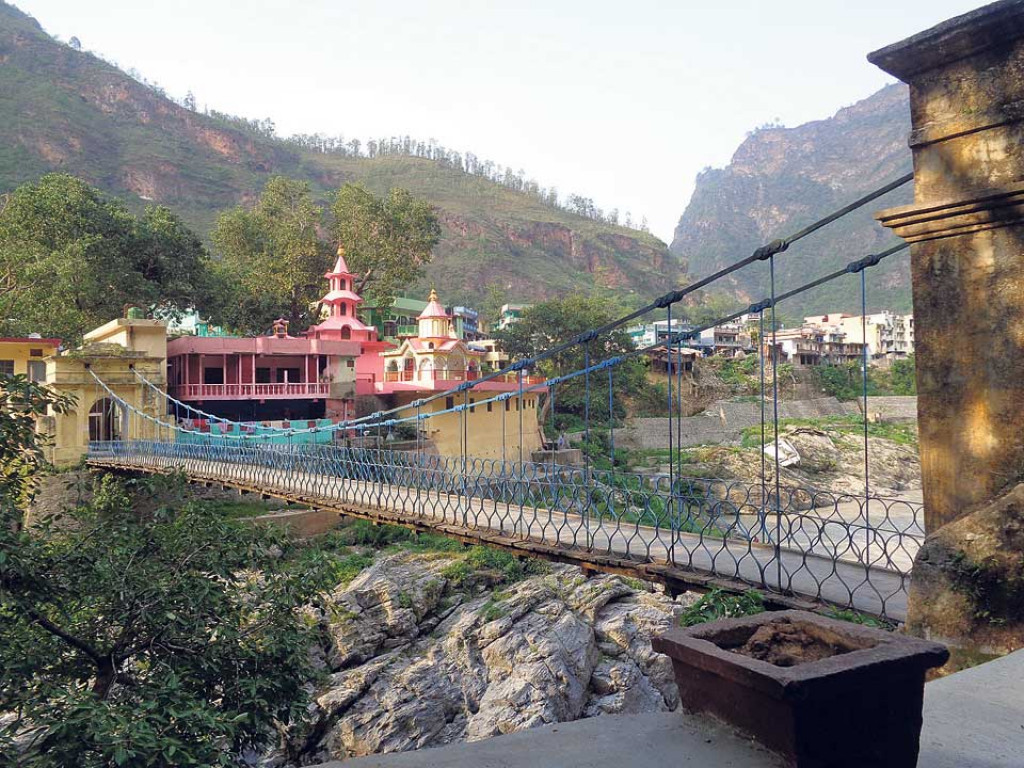
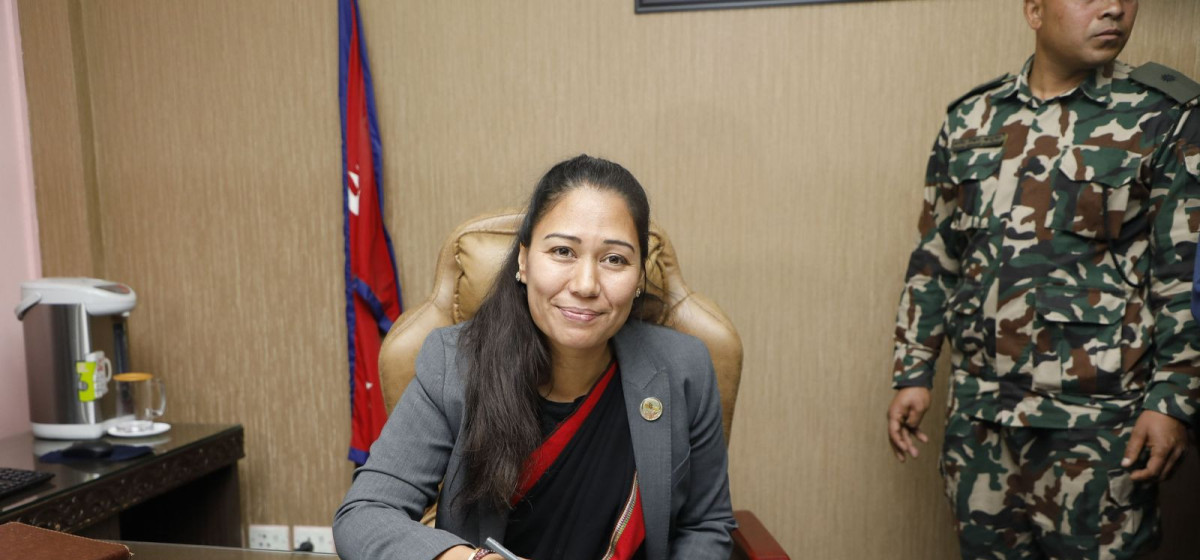
Leave A Comment